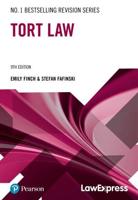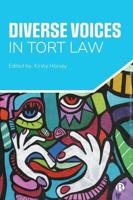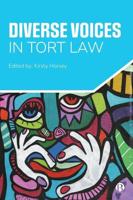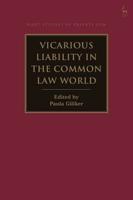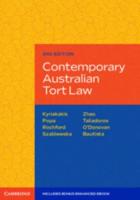Publisher's Synopsis
Through its excellence in scholarship, clarity, and ease of use, this casebook engages readers in critical thinking about Tort Law and its operation in modern social and technological settings. It sets forth crisply-edited classic tort cases, new Tort Law trends, and nuances in developing case law that impact the law and its application in the real world. Principal cases are not discarded just for the sake of change but because new cases reflect important changes in the law and present current doctrine in insightful and highly effective ways. The casebook goes beyond judicial decisions and includes key tort-centered legislation and comparative perspectives where relevant.In this new edition the notes have been reorganized and labeled and Chapter 1 includes a new overview of the torts practice landscape as well as a procedural map of a typical torts case. The remaining chapters have been updated with respect to key issues such as aiding and abetting (Chapter 2), causation (Chapters 4 and 5) negligence duties (Chapter 8), implied authority (Chapter 13) and new frameworks for nuisance liability (Chapter 16), and emerging considerations stemming from disinformation and generative A.I. (Chapters 17 and 18). Where appropriate, some chapters (such as Chapter 24, Compensation Systems), have been streamlined. The new edition also draws on the newer projects of the Restatement (Third) of Torts throughout.The casebook encourages the student to understand the English and American common law foundations of Tort Law and to debate modern trends within various policy prescriptions. Unbiased in its approach and organized in manageable sections of information, the casebook is a long-tested and superb tool for productive and stimulating classroom debate. In its long history, neutrality of viewpoint has been the aspiration of every author. It has served generations of students in opening avenues of inquiry.The authors are an outstanding combination of respected scholars and practitioners. Victor Schwartz was an Advisor on the first three sections of the Restatement (Third): Products Liability, Apportionment of Liability, and Physical and Emotional Harm. David Partlett is Professor Emeritus at Emory Law School and an Advisor on a number of Restatements, most recently the Restatement Third of Torts: Defamation and Privacy. The 15th edition has added two new editors: Jonathan Cardi, Professor at Wake Forest Law School and Associate Reporter of the Restatement (Third) of Torts: Intentional Torts, and Advisor on the Restatement of Torts Remedies and Concluding Provisions; and Alexandra Lahav, Professor at Cornell Law School, who serves as an Advisor on the Restatement of Torts, Miscellaneous Provisions and Constitutional Torts.



